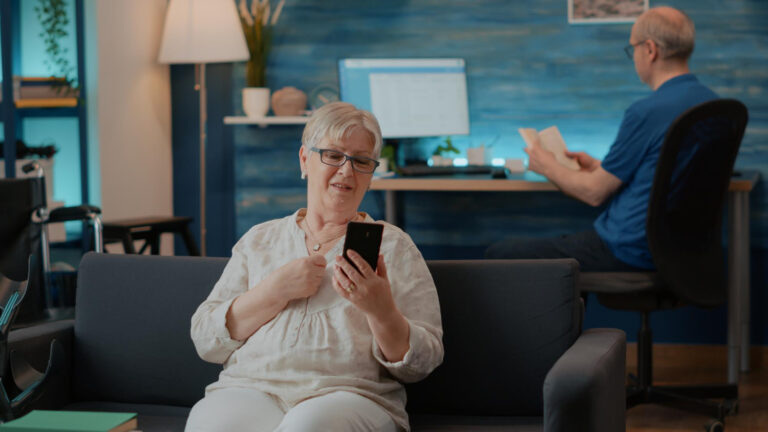
Medical alert technologies are evolving, delivering more sophisticated devices to seniors. Your loved ones benefit from tech-enabled devices that promote independent living and safety. As the demand for medical alert systems grows, older adults need technologies catering to their living arrangements. Here are the best personal safety solutions for seniors.
If you need a medical alert device, you must decide between mobile and in-home solutions. Mobile systems are best if you are active and frequently outside the home, as these devices use cellular technologies. Experts say they can signal your location to monitoring centers so caregivers and emergency responders know your whereabouts.
Medical alert technologies cater to different needs for older adults. Here are five criteria used to compare the devices and understand all options.
Modern devices offer advanced features and are tailored to your lifestyle needs. Here are the five best alert systems for seniors.
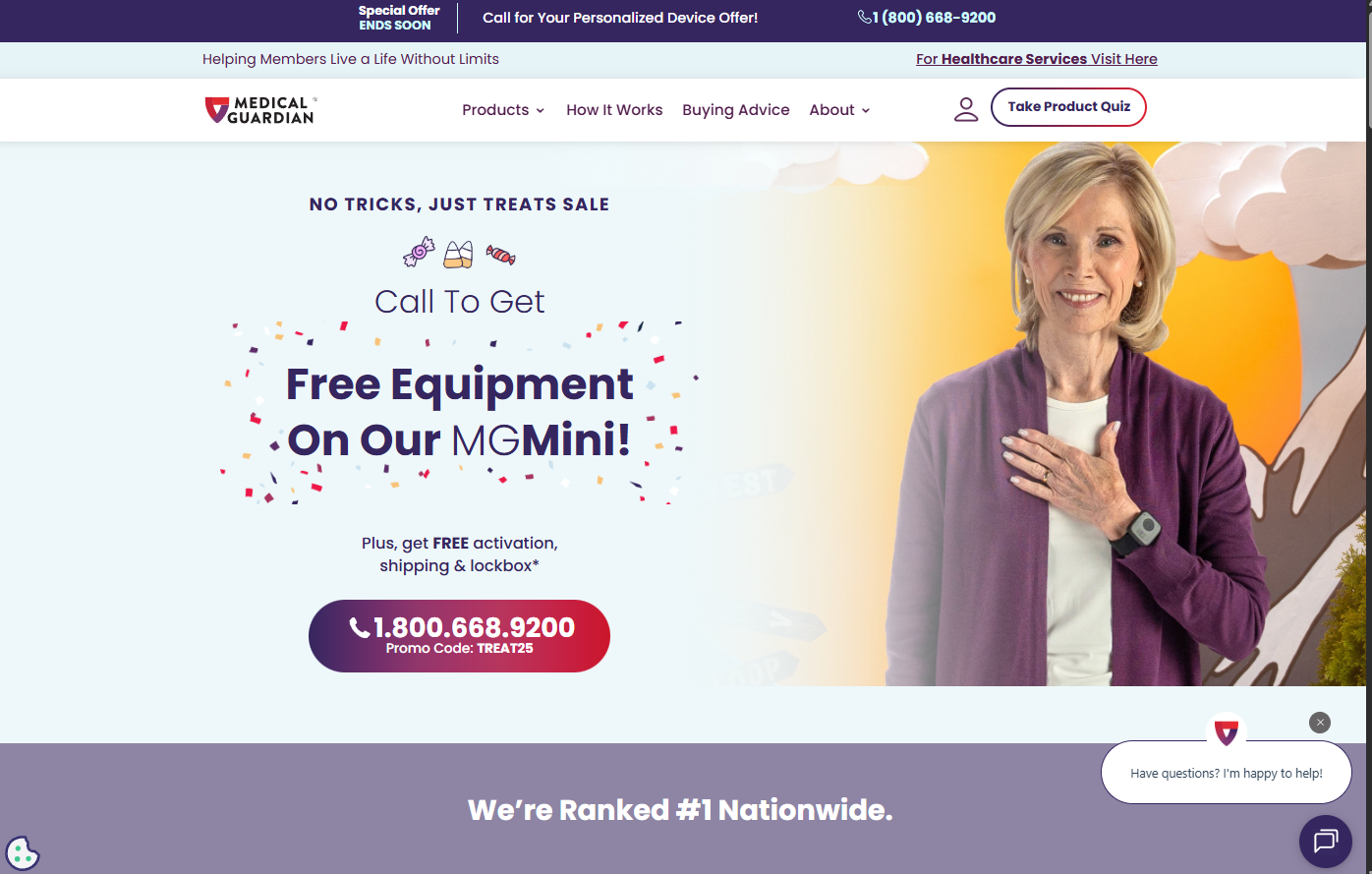
Medical Guardian is dedicated to making the future safer for aging adults and their loved ones. The company features trusted medical technologies for your home and active lifestyle.
Key features:
| Mobile and in-home options | Yes |
| Starting price | $27.95 per month |
| Highlights | Long battery life, engagement reporting and broad GPS coverage |
| Best for | Comprehensive coverage and customizable solutions |

Bay Alarm Medical promotes independent living by giving seniors landline and cellular options. Its medical alarm technologies offer automatic fall detection and 24/7 emergency service.
Key features:
| Mobile and in-home options | Yes |
| Starting price | $27.95 per month |
| Highlights | Affordable bundles, caregiver tracking app, optional fall detection |
| Best for | Overall value and flexibility |
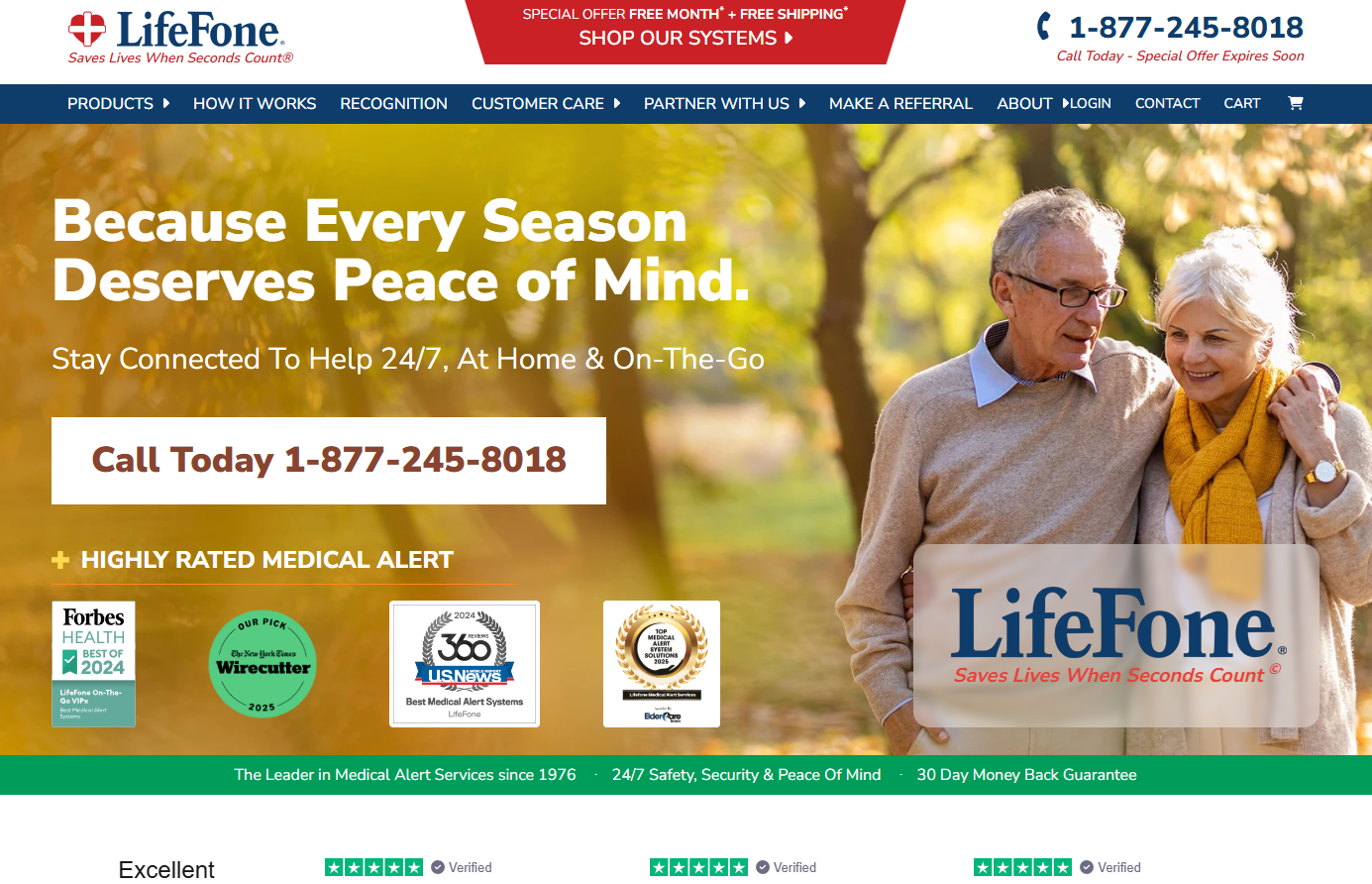
LifeFone helps you stay connected to your loved ones 24/7. Its medical alert devices suit any lifestyle by providing mobile and in-home options. Customers benefit from helpful policies like the lifetime subscriber price guarantee.
Key features:
| Mobile and in-home options | Yes |
| Starting price | $29.95 per month |
| Highlights | No equipment fees, customizable plans, GPS and cellular options |
| Best for | Families needing flexible coverage |
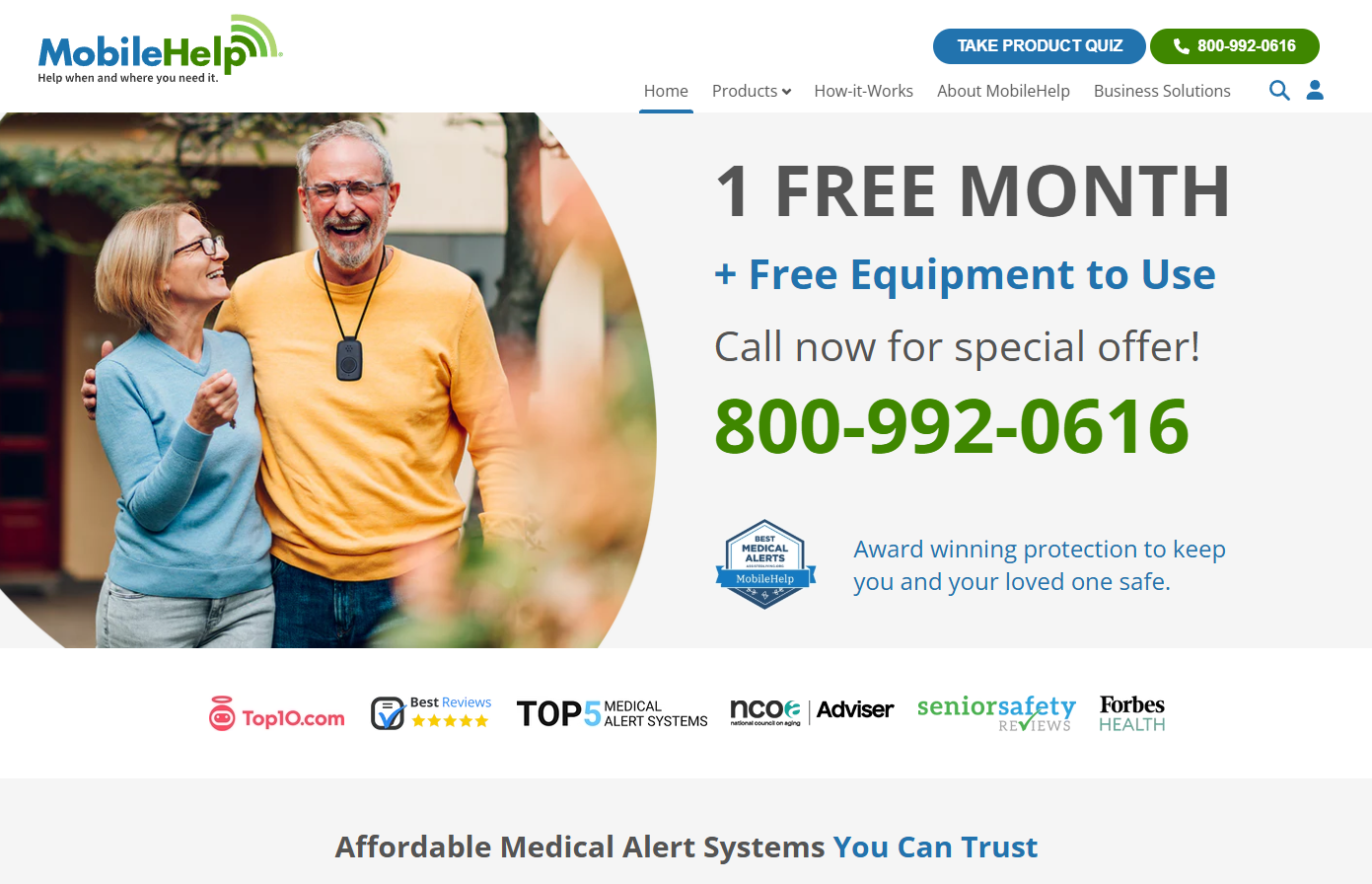
MobileHelp offers award-winning protection and easy setup for seniors. The affordable medical alert systems have GPS capabilities without requiring long-term commitments.
Key features:
| Mobile and in-home options | Yes |
| Starting price | $29.95 per month |
| Highlights | No landline required, GPS-enabled mobile units, easy setup |
| Best for | Seniors with active lifestyles |

UnaliWear Kanega Watch lets seniors wear discreet medical devices instead of clunky pendants. The watch features voice-activated help and automatic fall detection.
Key features:
| Mobile and in-home options | Primarily mobile |
| Starting price | Varies |
| Highlights | Smartwatch design, voice-activated help, fall detection |
| Best for | Discreet mobile protection |
Advanced medical technologies give seniors more choices for independent living. From watches to pendants, these devices support those with active lifestyles or limited mobility. Understanding the differences helps you decide which solutions are best for your family.

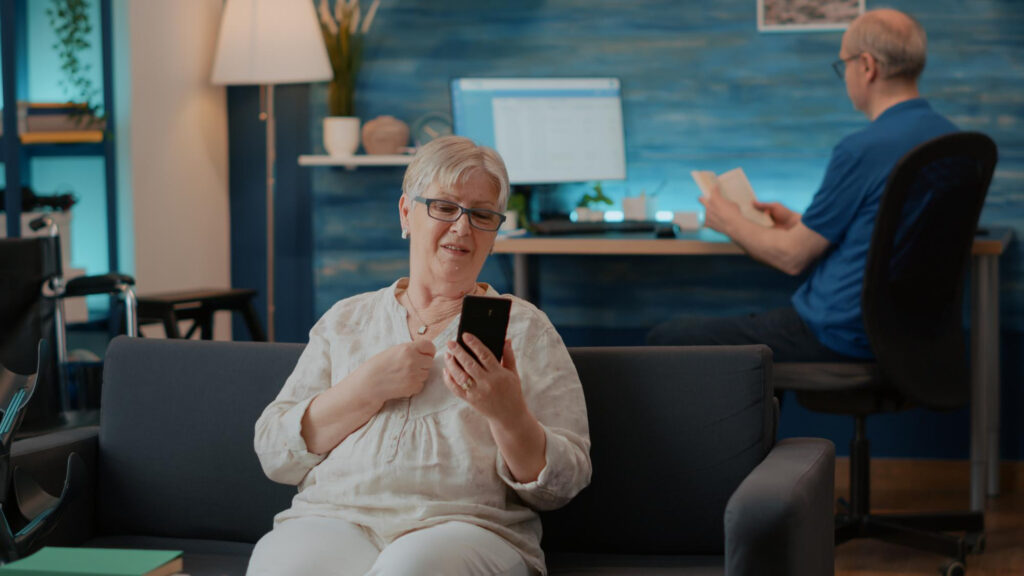
Lorem ipsum dolor sit amet, consectetur adipiscing elit. Ut elit tellus, luctus nec ullamcorper mattis, pulvinar dapibus leo.
Lorem ipsum dolor sit amet, consectetur adipiscing elit. Ut elit tellus, luctus nec ullamcorper mattis, pulvinar dapibus leo.